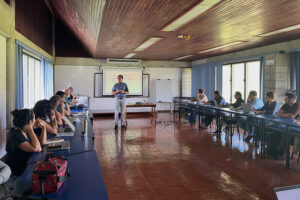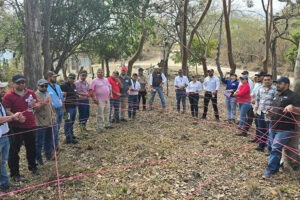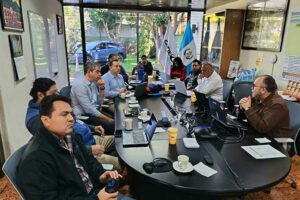CATIE investigates the potential of secondary forests for ecosystem services and pollinator conservation in the Trifinio Region
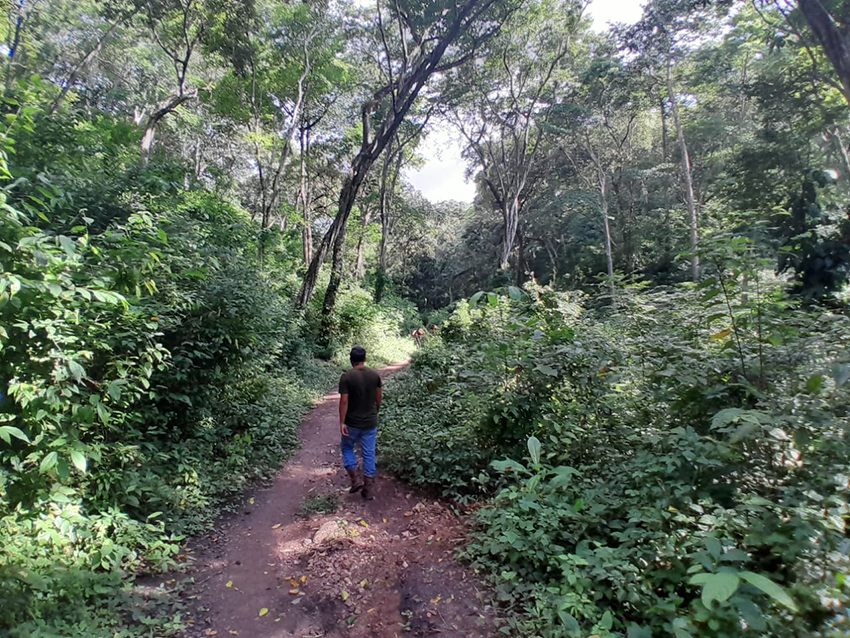
- Exploring the perception of different stakeholders on the role of biodiversity.
January 17, 2024. Research led by CATIE (Tropical Agricultural Research and Higher Education Center) has focused on secondary forests as vital ecosystems for biodiversity, particularly for pollinator communities in the Trifinio region, the border area between El Salvador, Guatemala, and Honduras. These ecosystems, though little explored, present significant potential for biodiversity conservation and the provision of crucial ecosystem services for crop productivity.
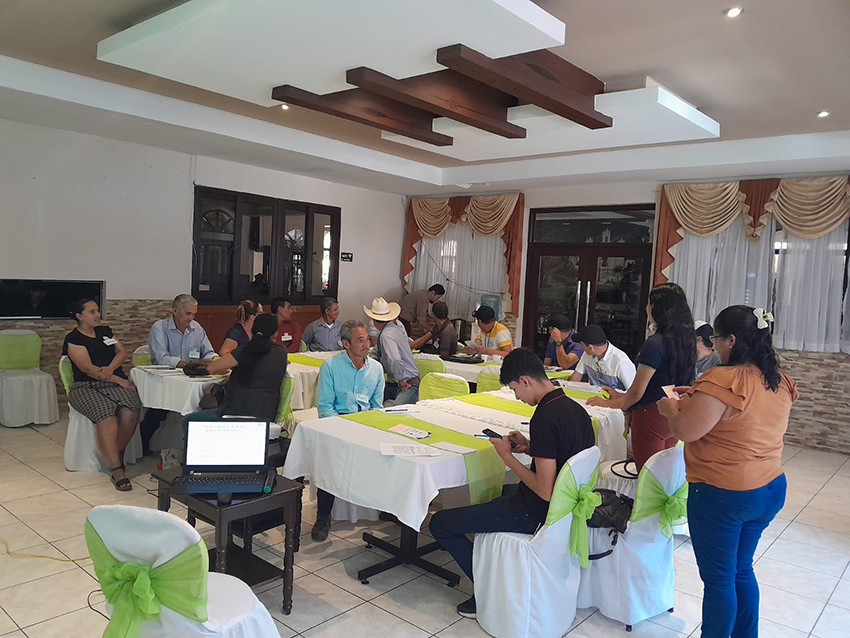
"The research aims to contribute to expanding knowledge of the state of secondary forests in the Trifinio region and understanding more about the biological diversity they harbor, especially regarding bee communities and their potential as providers of the ecosystem service of pollination in the region," commented Adina Chain, researcher in the Forests and Biodiversity in Productive Landscapes Unit at CATIE.
The research results, derived from local and regional consultation workshops in the Trifinio region, have shed light on fundamental aspects such as:
- Identification of secondary forests: Those consulted associate these ecosystems with characteristics such as their age, low height, ability to resprout, and proximity to crops, commonly calling them "guatales," "machorrales," or "guamilares." They often confuse them with agroforestry systems, which share some similarities with secondary forests.
- Recognized ecosystem services: Those consulted acknowledge the contributions of these forests in terms of goods and services, highlighting provisioning services such as water, wood, fruits, and food, as well as regulatory services like soil protection and carbon sequestration. However, the service of pollination is perceived only by some producers, particularly in coffee and fruit crops. Additionally, in several consulted and participatively mapped localities, there is a perception that water, wood, firewood, and pollinator diversity are decreasing.
- Relevant practices in production systems: Those consulted indicate that practices such as the use of live barriers, incorporation of organic matter into soils, and contour planting favor the maintenance of ecosystem services. On the other hand, pest control spraying and stubble burning are increasing practices that decrease pollinator populations and secondary forests. They also indicate that maintaining secondary forests promotes floristic diversity, positively impacting the diversity of honey qualities produced.
- Pollination and pollinators: Although there is no clear definition among those consulted, they associate pollination with the flower fertilization process, mainly by bees, hummingbirds, and butterflies. The main connoisseurs of native bee diversity in the territory are older producers, and there is a perceived trend towards a decrease in the diversity and quantity of native bee species, especially stingless bees or "meliponas."
- Legal and management gaps: The countries that make up the Trifinio region do not have a homologated definition for referring to secondary forests, making their identification at the territory scale difficult and unclear. This presents a clear opportunity to build a homologated definition of these ecosystems in the forest legislation of these countries, thus allowing the management, use, and conservation of these forest ecosystems.
The consultation workshops involved extensionists, promoters, and farming families belonging to cooperatives, associations, or local associative rural enterprises related to coffee cultivation, vegetables, basic grains, fruits, beekeeping, and secondary forests. Also, at the regional level, technical and research personnel associated with government agencies, academia, and non-governmental organizations participated.
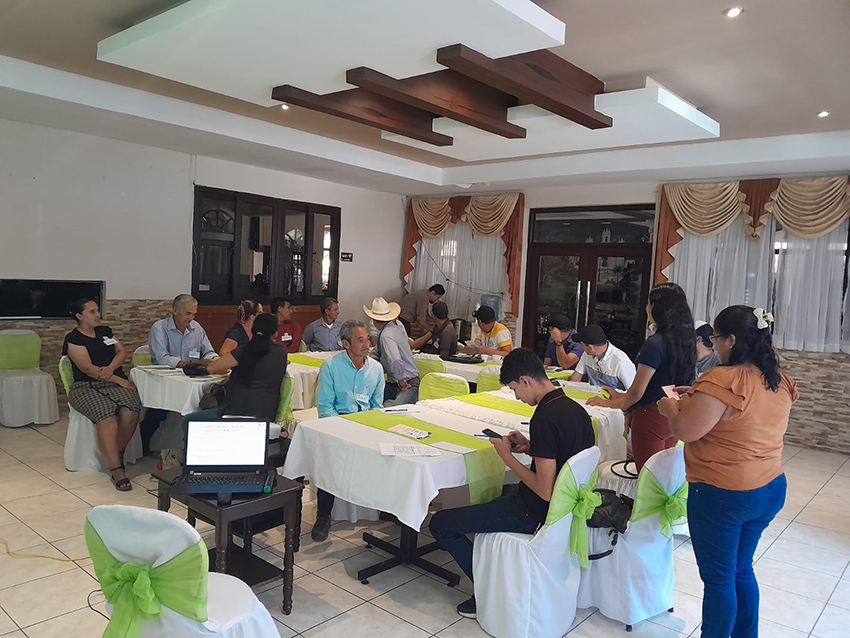
Next steps and expectations
This study contributes to the design and publication of a technical document aimed at disseminating knowledge about the importance of secondary forests and pollinators in the Trifinio region, with an emphasis on their importance for crop productivity. It is expected that the acquired knowledge provides an updated vision of the perception of the consulted actors regarding the situation of secondary forests, potential threats, and a mapping of institutions involved in their conservation. These efforts are executed in synergy with other initiatives, such as the Resilient and Biodiverse Landscapes project in Northern Mesoamerica, with support from the United Kingdom.
Additionally, the land use map of the Trifinio region will be updated, a necessary tool to identify priority areas for restoration and the generation of environmental services (e.g., water). This will allow spatial analysis to contribute to strengthening the management of this territory by the Trinational Commission of the Trifinio Plan.
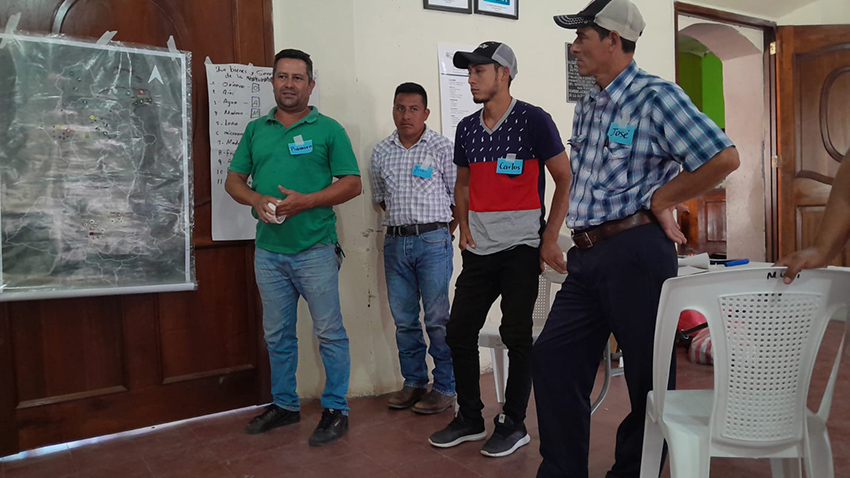
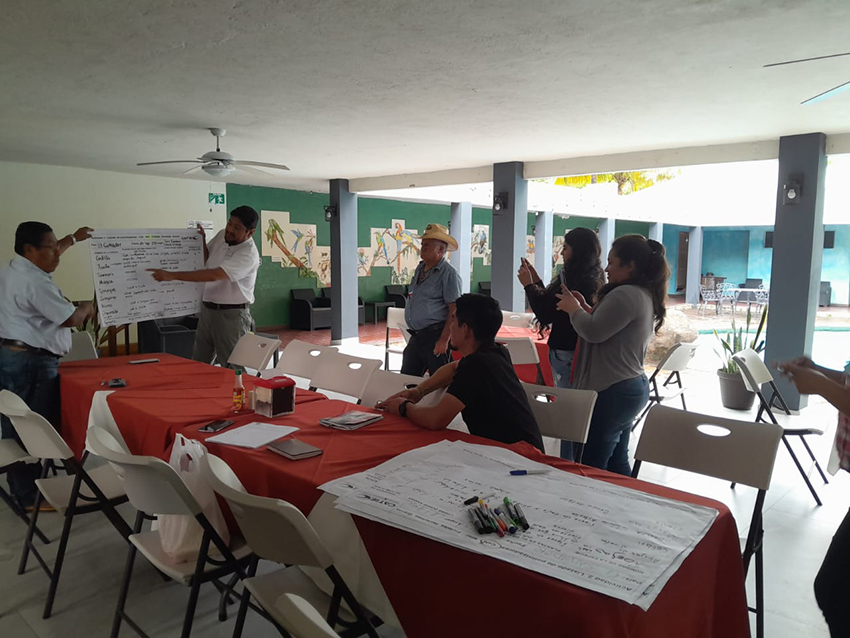
More information:
Adina Chain Guadarrama
Researcher
Forests and Biodiversity in Productive Landscapes Unit
CATIE
achain@catie.ac.cr
Written by:
Karla Salazar Leiva
Communicator
Communications and Marketing Office
CATIE
karla.salazar@catie.ac.cr

